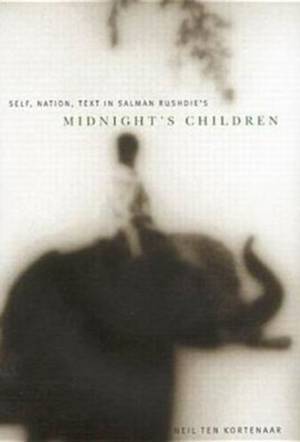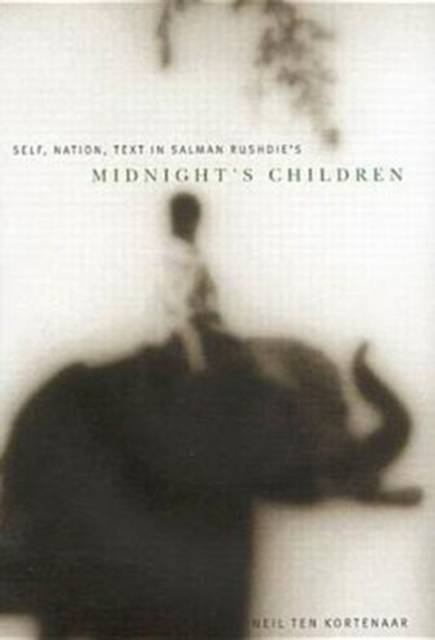
Je cadeautjes zeker op tijd in huis hebben voor de feestdagen? Kom langs in onze winkels en vind het perfecte geschenk!
- Afhalen na 1 uur in een winkel met voorraad
- Gratis thuislevering in België vanaf € 30
- Ruim aanbod met 7 miljoen producten
Je cadeautjes zeker op tijd in huis hebben voor de feestdagen? Kom langs in onze winkels en vind het perfecte geschenk!
- Afhalen na 1 uur in een winkel met voorraad
- Gratis thuislevering in België vanaf € 30
- Ruim aanbod met 7 miljoen producten
Zoeken
Self, Nation, Text in Salman Rushdie's Midnight's Children
Neil ten Kortenaar, Neil Ten Kortenaar
Paperback | Engels
€ 29,45
+ 58 punten
Uitvoering
Omschrijving
Many non-Indian readers find the historical and cultural references in Salman Rushdie's Midnight's Children demanding. In his close reading of the novel, Neil ten Kortenaar offers post-colonial literary strategies for understanding Midnight's Children that also challenge some of the prevailing interpretations of the novel. Using hybridity, mimicry, national allegory, and cosmopolitanism, all key critical concepts of postcolonial theory, ten Kortenaar reads Midnight's Children as an allegory of history, as a Bildungsroman and psychological study of a burgeoning national consciousness, and as a representation of the nation. He shows that the hybridity of Rushdie's fictional India is not created by different elements forming a whole but by the relationship among them. Self, Nation, Text in Salman Rushdie's Midnight's Children also makes an original argument about how nation-states are imagined and how national consciousness is formed in the citizen. The protagonist, Saleem Sinai, heroically identifies himself with the state, but this identification is beaten out of him until, in the end, he sees himself as the Common Man at the mercy of the state. Ten Kortenaar reveals Rushdie's India to be more self-conscious than many communal identities based on language: it is an India haunted by a dark twin called Pakistan; a nation in the way England is a nation but imagined against England. Mistrusting the openness of Tagore's Hindu India, it is both cosmopolitan and a specific subjective location.
Specificaties
Betrokkenen
- Auteur(s):
- Uitgeverij:
Inhoud
- Aantal bladzijden:
- 304
- Taal:
- Engels
Eigenschappen
- Productcode (EAN):
- 9780773526211
- Verschijningsdatum:
- 1/05/2005
- Uitvoering:
- Paperback
- Formaat:
- Trade paperback (VS)
- Afmetingen:
- 154 mm x 231 mm
- Gewicht:
- 485 g

Alleen bij Standaard Boekhandel
+ 58 punten op je klantenkaart van Standaard Boekhandel
Beoordelingen
We publiceren alleen reviews die voldoen aan de voorwaarden voor reviews. Bekijk onze voorwaarden voor reviews.









